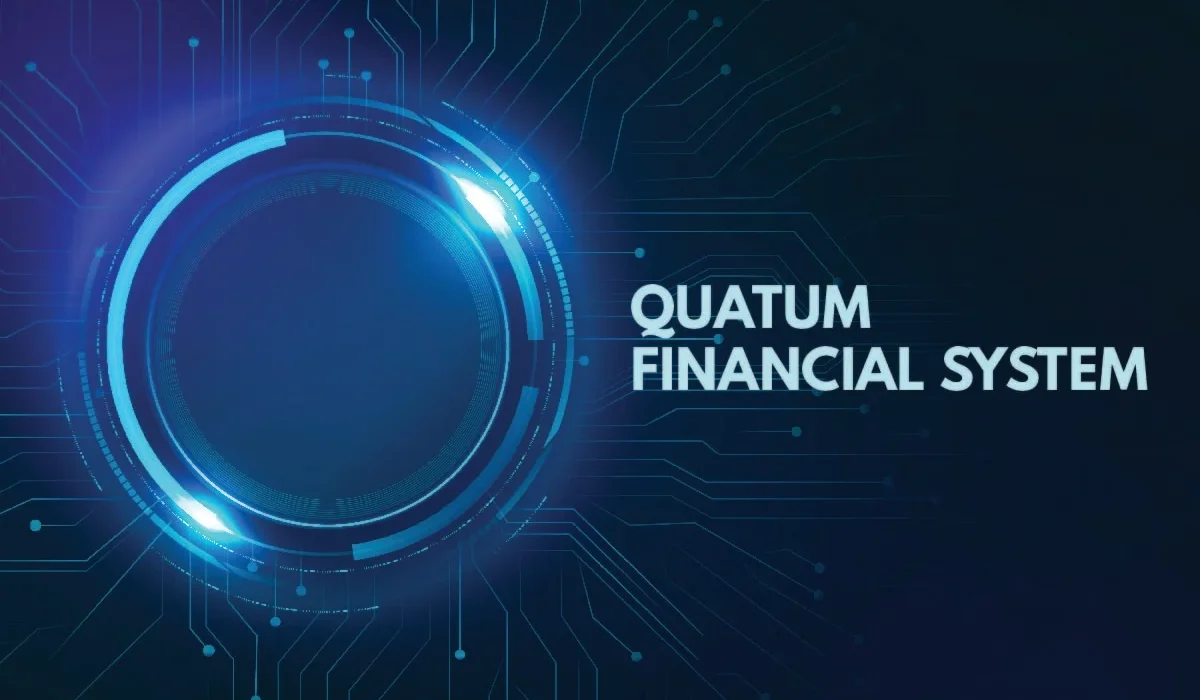Introduction and Understanding:
The banking world is constantly changing with the introduction of new technologies and the growing need for speed, safety, and efficiency. One of the most important and promising developments in this realm is the Quantum Financial System (QFS). In this blog post, we will discuss the concept of the quantum financial system and how it might affect the financial industry. We will also talk about the current state of quantum computing, its challenges and ethical concerns, and its prospects.
To understand the importance of the QFA, you need to know the workings of quantum computing. Traditional computers rely on bits as the smallest unit of information, which can be either 0 or 1. On the other hand, quantum computing uses quantum bits, or qubits, which can exist simultaneously in more than one state because of the superposition and entanglement concepts. Because of this inherited parallelism, quantum computers can perform hundreds of complex operations exponentially faster than classical computers.
What’s the Quantum Financial System (QFS)?

The Quantum Financial System (QFS) is a revolutionary financial infrastructure that uses the power of quantum computing to handle financial data and transactions. It uses quantum algorithms, quantum cryptography, and quantum networking to make a platform for financial operations that is safe, efficient, and new. Here are some of the key features and benefits of the QFS.
Unbelievable Speed
Quantum computers can do calculations faster by many orders of magnitude than classical computers. This incredible speed reduces the transaction time, enhances real-time decisions, and minimizes the risks of market fluctuations in trade execution.
Unbreakable Security
Quantum cryptography, also known as quantum key distribution (QKD), makes sure that data and interactions are impossible to hack. The unique properties of qubits make it more difficult for cybercriminals to intercept financial information, offering a new level of data security.
Advanced Risk Management
Quantum computing can change risk measurement and management in the financial industry. It can process huge amounts of data in real-time, allowing for better risk predictions and more stable financial decision-making.
Portfolio Optimization
Quantum financial algorithms can optimize financial portfolios with an unseen level of accuracy. They take into account a multitude of variables, constraints, and possible scenarios to get the best returns while minimizing risk.
Fraud Detection
The QFA can improve fraud detection systems, making it easy to detect strange things about financial activities. This capability helps reduce financial losses due to fraudulent activities.
Challenges and Considerations in the (QFS)

There are some problems and things to think about as this system develops:
Development Cost
The development costs of quantum computers and the equipment needed to support them are much more expensive. These costs may act as a barrier for smaller financial companies to start up, which could make the digital divide in finance even bigger.
Security Risks
Quantum cryptography is incredibly secure, but it is important to be aware of the possible security risks. As quantum computers became more powerful, they could also break the current encryption methods, and this led to the development of post-quantum cryptography.
Moral Concerns
The ability to quickly handle a lot of data raises ethical questions about privacy and surveillance. To solve these problems, we need to set up regulatory frameworks and business standards.
Training and Education
To use a QFS, we need people who can run and support quantum systems. It is important to prepare multiple professionals for this new age to ensure the technology works well.
Impact of Quantum Financial Systems on the Global Financial Landscape

Here are some of the most important ways that the QFS could change the industry:
More financial access
The speed and efficiency of the QFA could make financial services more accessible to deprived groups of society. With lower transaction prices and enhanced security measures, more people around the world could have access to the financial system.
Enhanced stability of the economy
This could help stabilize the financial system by allowing real-time risk assessment and improvement. The QFS may also help in stopping catastrophic financial events by identifying and mitigating potential financial events.
Innovation in Finance
This is likely to make the financial industry more creative. With the ability to process data at higher speeds, financial institutions can create new and unthinkable goods and services.
Global integration
Quantum networking, a part of the QFS, could make cross-border operations go more smoothly. This could make it easier for countries to deal with each other and economically work together, while also reducing friction in the global financial system.
Risk Reduction
The QFS’s advanced risk management capabilities may lead to a reduction in systemic risks within the financial industry. This, in turn, can help protect the broader economy from financial crises. is so good at managing risk that there may be less systemic risk in the financial business.
Conclusion:
The QFA is a quantum leap in the world of finance. It offers speed, security, and skills never seen before. Even though there are a lot of problems to solve, like the costs of development, security risks, and ethical issues, the possible benefits are huge. As quantum computing keeps improving, financial institutions and regulators must work together to ensure the shift to the QFS is fair and goes smoothly. By doing this, they can improve the future of money, making it more stable, creative, and open to everyone. The road to the QFA System is exciting, and we have yet to see its full potential.
Frequently Asked Questions:
Q1. What is the (QFS)?
The (QFS) is a new and innovative way to handle world finance. The combination of quantum networking, quantum cryptography, and quantum algorithms makes it a safe, fast, and unique tool for financial activities.
Q2. What’s the difference between traditional computing and quantum computing?
Quantum computing is different from traditional computing because it uses qubits, which are quantum bits. These bits work simultaneously in more than one state. Because of this, quantum computers can do highly complex math much faster than regular computers.
Q3. How can QFS impact the world’s financial landscape?
The QFS could lead to more financial inclusion by making it easier for people needing more financial services. It might make the economy more stable by making it easier to evaluate risks and stop financial problems before they happen. It could also lead to new ideas in banking and make it easier to do business across borders.
Q4. How can individuals and companies prepare for the adoption of QFS?
To prepare for the QFS, you should keep up with new developments in quantum computing, consider how your company can use quantum technology, and spend money on training and education for your employees to understand and use quantum systems correctly.
Visit our website FuseBay, for more informative and worthy articles.








